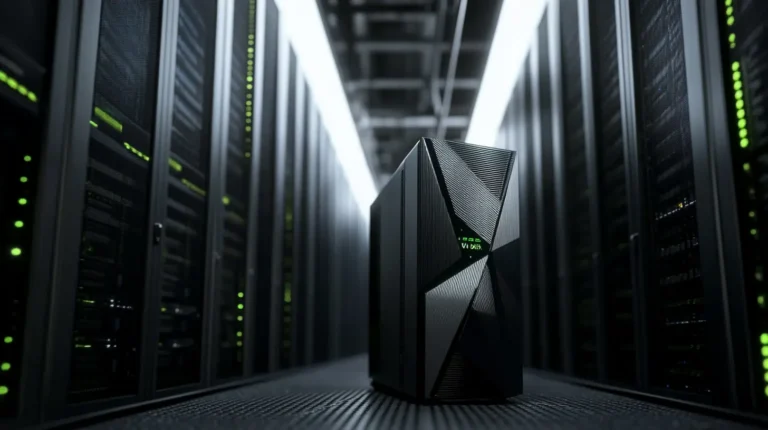Nvidia’s AI server hardware may escape the impact of the latest U.S. tariffs, according to a recent analysis by Bernstein. This comes as a reassuring note for investors wary of how shifting trade policies could disrupt the tech sector.
Bernstein revealed that one of the most common inquiries they’ve received recently relates to whether Nvidia’s advanced AI datacenter systems might fall under the new tariff regulations. Although semiconductors have generally been left out of tit for tat tariff measures, Nvidia’s AI infrastructure, which is heavily hardware-based, raised questions about whether it could be affected especially depending on the country of origin.
However, a closer look at import data and classification codes suggests that most of Nvidia’s AI server shipments to the U.S. originate from Mexico. Data from 2024 shows that approximately 60% of these imports are from Mexico, while another 30% are sourced from Taiwan. Bernstein’s team used Nvidia’s product classifications and harmonized tariff codes (such as 8471.50, 8471.80, and 8473.30) to analyze components like its DGX and HGX systems.
Their interpretation of the US Mexico Canada Agreement (USMCA) indicates that these hardware categories fall within the agreement’s approved list. That implies Nvidia’s AI servers shipped from Mexico could be exempt from tariffs imposed under the most recent U.S. trade policy updates.
Interestingly, the same favorable treatment may also apply to servers first imported into Mexico from other regions before entering the U.S., offering even broader tariff relief.
Despite this potentially positive news, Nvidia’s stock has seen a steep decline down 30% since the beginning of the year, with significant losses occurring just this past week. The broader technology sector has felt pressure from what’s being dubbed the “Trump Tariff Tsunami.”
Still, Bernstein maintains an optimistic outlook. Nvidia is currently trading at about 20 times its projected earnings the lowest valuation the company has seen in nearly 10 years. Analysts at the firm continue to rate the stock as “Outperform,” emphasizing their confidence in the long-term strength of AI-driven growth.

